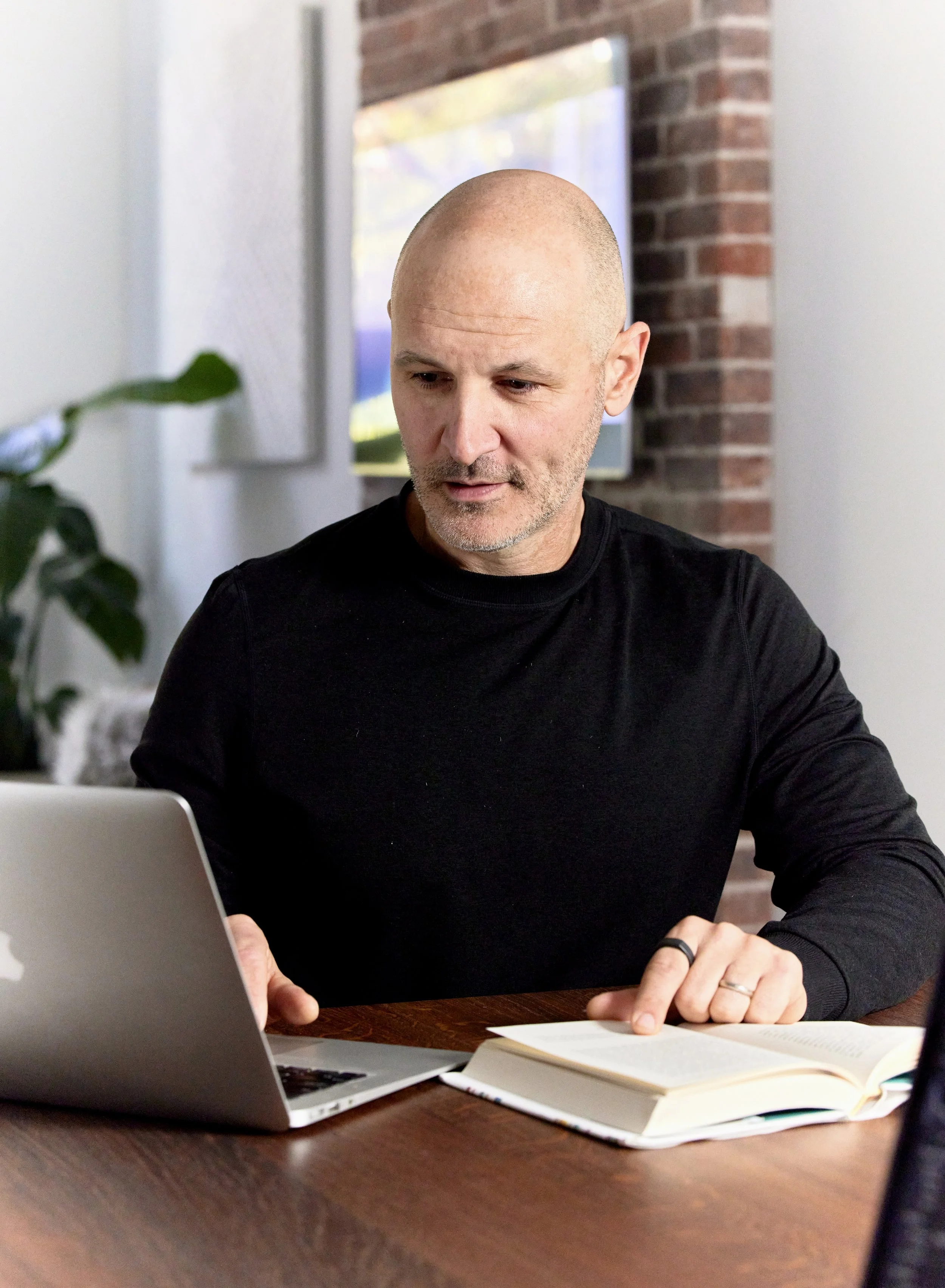Preformance Philosophy
Performance isn't a mindset. It's a system.
These principles aren't hacks or hype. They reflect what it takes to grow through challenge, perform under pressure, and build something that lasts.
Each draws from clinical insight, coaching experience, and two decades of work with people whose margins for error are razor thin.
This is the work behind the work.
Values, Not Validation
Chasing someone else's definition of success is a losing game. Performance that lasts comes from within, driven by your core values.
Values clarify why you're here and what matters most. They give pressure meaning, keep you grounded in chaos, and make success feel earned, not borrowed.
External validation might ignite you, but it won't sustain you. Values will.
Identity Beyond Performance
Being all-in matters. But tying your entire self-worth to one role is a trap.
You're not just an athlete, performer, or professional. You're a whole person. A broader identity creates resilience. When one part of life hits friction, the rest of you can hold steady.
The more dimensions you develop, the more adaptable you become.
The Physiological Foundation
Performance isn't just mental. Your nervous system, recovery capacity, and stress response underpin everything else.
When your body is in chronic fight-or-flight, no amount of mental skills training will override it. Sleep, HRV, arousal regulation, training load—these aren't secondary. They're foundational.
You can't think your way out of a dysregulated nervous system.
Mastery as Process
Mastery isn't a destination. It's a process. The daily commitment to show up, push your edge, and evolve.
Achievements matter, but they're not the fuel. The drive comes from testing your limits, not proving your worth.
Mastery doesn't wait for ideal conditions. It's forged in the work itself, not found at the finish line.
Integration: Discipline and Self-Compassion
Relentless effort without self-compassion burns people out. Fierce discipline is essential, but without kindness toward yourself, it leads to breakdowns, not breakthroughs.
True strength doesn't come from choosing between drive and recovery. It comes from integrating both.
Discipline builds progress. Self-compassion sustains it. In that balance, high performers discover something deeper: joy in the process.
Mental Agility
Flow feels like magic, but it's not always available. Some days, your A-game is out of reach. So what then?
That's when preparation takes over. The real test isn't how you perform when everything clicks. It's how you respond when it doesn't.
Mental agility is the ability to notice what you're experiencing, create space around it, and act with intention—even when discomfort shows up.
Show up. Compete anyway. That's what separates the best.
Working with Pattern: The Unconscious
Most performance work stays at the conscious level: strategies, self-talk, routines. That's valuable.
But when you know what to do and still don't do it, the issue isn't tactical. It's pattern.
Unconscious drives, defenses, and emotional structures run beneath awareness. They shape how you respond under pressure, why you self-sabotage at the same moment, and why the same pattern keeps repeating.
Understanding what's underneath isn't optional. It's how sustainable change actually happens.
Environment and System
High performance doesn't happen in isolation. Your environment—spaces, culture, people—shapes your trajectory.
Resilience isn't just an inner trait. It's cultivated by the systems and relationships around you.
A high-challenge, high-support environment stretches your limits while providing the foundation to grow. At the center of that system is trust: the ability to give and receive feedback, to connect authentically, and to lead with emotional intelligence.
Success depends not just on your personal drive, but on who and what surrounds you.
Antifragility: Growing Through Adversity
Setbacks aren't roadblocks. They're data. They show you what needs refining and challenge you to adapt.
Resilience is bouncing back. Antifragility is growing because of the setback.
The best performers don't just endure adversity. They evolve through it. Emotional agility is the skill that separates those who fold from those who rise.
When discomfort becomes fuel, setbacks become stepping stones.
Sustainable Success
Talent gets attention. Consistency builds legacy.
Sustainable success comes from routines, habits, and systems that hold up under pressure. The best performers don't rely on talent alone. They build structures that support focus, recovery, and growth.
Gratitude sharpens that edge. It keeps you grounded in the process, connected to your team, and motivated to keep showing up.
The Process Is the Path
Change doesn't start with knowing everything. It starts with noticing, accepting, and acting.
The goal isn't perfection. It's progress built on intention.
You don't need to be flawless to move forward. You need to be honest.
Notice what hits a nerve. That's your edge. Step toward it, not with self-judgment, but with clarity.
This isn't about arrival. It's about consistent engagement. That's how self-trust and confidence build, how performance grows, and how lasting change takes hold.
Show up. Do the work. The process is the path.


